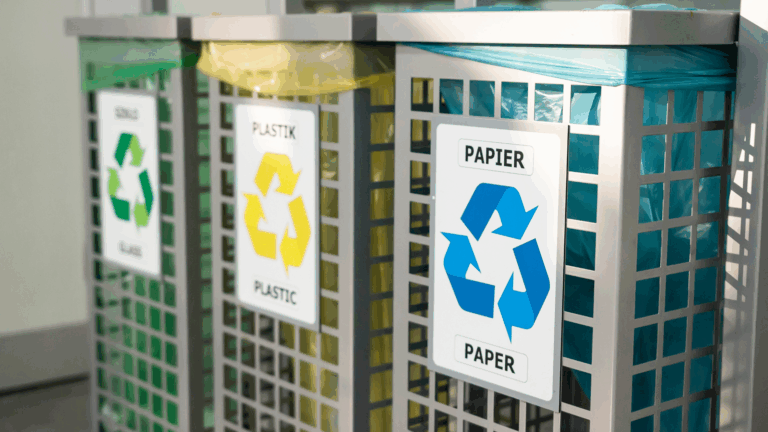
Extended Producer Responsibility is making sure those responsible for commercial waste are being held accountable
A circular waste economy is fast becoming the norm in today’s business landscape, championing sustainability and ensuring as much waste as possible is reused and recycled.
Businesses across all sizes and sectors are looking to move away from a more linear approach to production, meeting the criteria for increasingly stringent environmental policies and regulations.
A circular waste economy includes measures to improve commercial waste management, including Extended Producer Responsibility (EPR). We’re going to take a closer look at EPR, and what impact it could have on your organisation.
What is EPR?
Extended Producer Responsibility is a key factor in the movement towards a more sustainable, circular economy. EPR places the environmental responsibility of an item on said item’s producers, even beyond point of sale.
This means that products remain the responsibility of the manufacturers even after they have been disposed. This has been designed to reduce waste and conserve natural resources by ensuring producers are held responsible for the ‘post-consumer’ stage of their products’ lifecycles.
This is a huge change set to impact 25 million UK premises, but the benefits are substantial, resulting in better, faster connections and fewer faults.
How will EPR impact your business?
The specific implications of EPR will change from location to location, and from business to business. However, overall it requires producers to bear the responsibility of lifecycle costs associated with the products like create.
This includes costs associated with the collection, transportation, treatment, and disposal of products. Before EPR, these costs were partly, or in some cases wholly, borne by local governments.
Legislation around EPR allows producers to handle these obligations individually, or through collective systems such as producer associations. These help with the brunt of organising and financing responsible waste management.

A holistic approach to sustainability
Eco-consciousness isn’t something that exists in a vacuum, and emerging EPR regulations can be complemented by other regulatory measures designed to promote a circular approach to sustainability.
By encouraging producers to see EPR as an opportunity rather than a challenge to overcome, governments hope to see them take advantage of available incentives and embrace environmental considerations when designing new products.
What can we learn from EPR?
The EU is already regulating EPR for a range of different products, including single-use plastic items, packaging, batteries and accumulators, and electronic equipment. Recycling and reuse targets, bans on certain types of packaging, and measures to reduce packaging waste are also set to be implemented across the single market.
This includes the Draft Packaging and Packaging Waste Regulation, published in November 2022 and put into action this year.
Elsewhere, the Spanish Waste Act ensures producers of furniture, textiles, and home fixtures practice organisational responsibility for waste management, and the US’ Break Free From Plastic Pollution Act was published in 2021.
Consumers all over the world are becoming more environmentally astute, and businesses must stay in line with these greener expectations. Seeing how EPR has been successfully implemented on a global scale shows how the business landscape is changing, and why sustainability must be a key consideration of any modern organisation.

How to implement EPR
Horizon scanning of EPR regulatory changes can help your organisation prioritise green best practices, while also gaining a holistic view of compliance to identify potential efficiencies and cost savings.
Strategic planning and compliance mapping can help you set realistic goals based on gathered data, taking supply chains into account. This information can also be used to upskill staff members and ensure EPR awareness is shared across your organisation.
Taking the time to understand regulatory and legal implications for the jurisdictions you operate within can ensure you create an EPR strategy that sets you apart as a sustainable business.

Contact Everflow today!
At Everflow, our goal is to make your utilities simpler. We ensure you get great-value contracts that are tailored to your needs and easy to manage.


